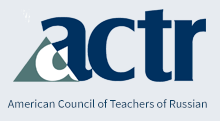Russian Language Journal
Keywords
COVID-19 pandemic, Russian language learning, linguistics
Abstract
Я зык отражает все значимые события, происходящие в обществе, поэтому не удивительно, что так изменившая в 2020 году жизнь множества людей пандемия COVID-19 не могла не найти отражение в языке. Сложился новый глобальный дискурс коронавирусной эпохи – не случайно в разных странах и разных языках, где выбирают слова года, победителями в 2020 году стали такие слова, как коронавирус, маски, локдаун, социальное дистанцирование и др. В статье мы кратко охарактеризуем основные особенности «русского ковидного», обращая особое внимание на новые языковые явления – изменения в лексике (появление новых слов и выражений, рост частотности редких слов, переход терминов в разряд общеупотребительной лексики), новые способы словообразования и синтаксические конструкции. Мы также попытаемся через призму языка проанализировать реакцию российского общества на действия президента и правительства по борьбе с пандемией.
Transliterated title: Russkii kovidnyi: Novye iazykovye iavleniia global’noi panedmii
Translated title: COVID-Russian: New Linguistic Features from a Global Pandemic
Abstract: This paper deals with the linguistic response to the social and psychological situation in Russia in the era of coronavirus. COVID-19 changed everyday vocabulary throughout the world (consider the same “words of the year 2020” in different languages, such as pandemic, lockdown, social distancing, facemasks, etc.). I analyze medical terminology and its role in the everyday Russian vocabulary, linguistic reactions to the measures taken by the Russian government and the Moscow authorities to combat COVID-19 and to the changes in people's lives caused by them, and spontaneous linguistic responses to the situation in the form of language games and metaphors. I pay special attention to linguistic reflections of the public’s reaction to President Putin’s behavior and speeches during the pandemic.
Recommended Citation
Шмелева, Е. (2021). Русский ковидный: Новые языковые явления глобальной пандемии. Russian Language Journal, 71(2). https://doi.org/10.70163/0036-0252.1017


